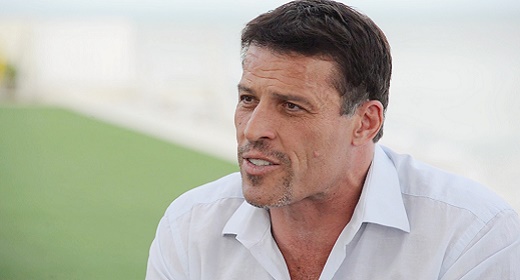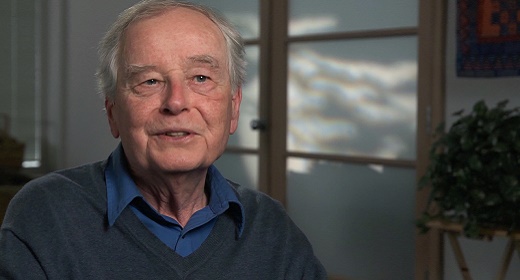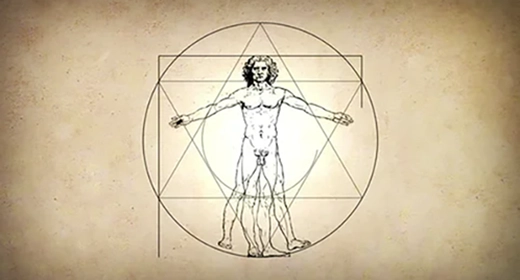by Raven Fon: Stories are wonderful teaching tools. Part of their usefulness comes from their versatility…
As in, the message I pick up from a certain story might not be the same one you receive, but they are just as important as each other and serve a purpose. The reason stories are more effective teaching tools is because rather than being directly told “This is good, this is important, and this is how this works”, stories allow you to creatively figure things out for yourself and apply the lesson where it needs to be learned.
Zen stories are known for their ways of teaching life lessons through some level of meditative contemplation. They speak of things which everyone can learn from, and are basically stories about life, spoken in truths.
The following six Zen stories will teach you some important life lessons; they are beautiful and beneficial to anyone.
1. Everything Changes
“Suzuki Roshi, I’ve been listening to your lectures for years,” a student said during the question and answer time following a lecture, “but I just don’t understand. Could you just please put it in a nutshell? Can you reduce Buddhism to one phrase?”
Everyone laughed. Suzuki laughed.
“Everything changes,” he said. Then he asked for another question.
One of Buddhism’s foremost teachings is how everything in life is ever-changing and impermanent. Suzuki Roshi (Shunru Suzuki of Zen Mind, Beginner’s Mind) refers to this impermanence when he says “everything changes”. This seems like a pretty simple teaching but it is actually one of the deepest lessons one can learn. I’ll try to sum it up in as few words as possible.
Impermanence ecompasses everything. For that reason, we could not possibly comprehend it’s full magnitude, even if we contemplated it for hours on end. We are impermanent, our loved ones are impermanent, as are our homes, our pets, and even our planet.
This is important because it teaches us that the very act of holding on to things is one of the major reasons why we suffer. If we were to live fully aware of the constantly changing nature of reality, and appreciate the present, we would be much happier. Letting go isn’t the answer, because what’s more important, is not grasping in the first place. We can find peace in everyday life if we learn to live this way.
Nan-in, a Japanese master during the Meiji era (1868-1912), received a university professor who came to inquire about Zen.
Nan-in served tea. He poured his visitor’s cup full, and then kept on pouring. The professor watched the overflow until he no longer could restrain himself. “It is overfull. No more will go in!”
“Like this cup,” Nan-in said, “you are full of your own opinions and speculations. How can I show you Zen unless you first empty your cup?”
Once upon the time there was an old farmer who had worked his crops for many years. One day his horse ran away. Upon hearing the news, his neighbors came to visit. “Such bad luck,” they said sympathetically.
“Maybe,” the farmer replied.
The next morning the horse returned, bringing with it three other wild horses. “How wonderful,” the neighbors exclaimed.
“Maybe,” replied the old man.
The following day, his son tried to ride one of the untamed horses, was thrown, and broke his leg. The neighbors again came to offer their sympathy on his misfortune.
“Maybe,” answered the farmer.
The day after, military officials came to the village to draft young men into the army. Seeing that the son’s leg was broken, they passed him by. The neighbors congratulated the farmer on how well things had turned out.
“Maybe,” said the farmer.
I love this one. Non-judgment is being practiced here by the farmer. The true nature of life is understood by him and he realizes that no event can be judged in an “end” manner. Our lives aren’t written to play out like works of fiction- there aren’t absolute breaks which separate one moment from another, and there isn’t one finalized formula which everything builds to.
Labeling something as “good” or “bad” is irrelevant because there are more than a million effects which can rise from one event. Both good and bad are interconnected at all times and are part of the impermanence. If things seem perfect, they aren’t. And if things seem horrible, they aren’t. And it’s all because of change.
Through ever-present changes, we can appreciate and implement non-judgment into our lives. Try to look at your life through the lens of this infinitely co-existing universe. A great sense of peace can be gained just by going through this act of observation.
When Bankei held his seclusion-weeks of meditation, pupils from many parts of Japan came to attend. During one of these gatherings a pupil was caught stealing. The matter was reported to Bankei with the request that the culprit be expelled. Bankei ignored the case.
Later the pupil was caught in a similar act, and again Bankei disregarded the matter. This angered the other pupils, who drew up a petition asking for the dismissal of the thief, stating that otherwise they would leave in a body.
When Bankei had read the petition he called everyone before him. “You are wise brothers,” he told them. “You know what is right and what is not right. You may go somewhere else to study if you wish, but this poor brother does not even know right from wrong. Who will teach him if I do not? I am going to keep him here even if all the rest of you leave.”
A torrent of tears cleansed the face of the brother who had stolen. All desire to steal had vanished.
Most people would quickly turn their back on someone who commits a crime, like stealing, similar to how the pupils did. But this story teaches us to look deeper than the act and see the human being that lies beneath. A human who simply needs to be shown kindness and the path.
Writing people off is easy to do when they falter, and expressing compassion might be something other than easy, but the bottom line is that we are all in this life together. We can’t just help the ones who show good behaviour, since the ones who need it most often exhibit the opposite. We should strive to help lift those up who have fallen, despite their flaws, just as we would lift ourselves up.
A horse suddenly came galloping quickly down the road. It seemed as though the man had somewhere important to go.
Another man, who was standing alongside the road, shouted, “Where are you going?” and the man on the horse replied,
“I don’t know! Ask the horse!”
This short, well known Zen story has a powerful teaching behind it. The horse is symbolic of our habitual energy, or what drives us on auto-pilot most times. This story tells us the funny way we usually live: at the mercy of our habits that haven’t come from intentional actions, but rather mindless activity and surroundings instead.
Our habitual energy drags us along, pulling us in every direction at a hurried pace and we don’t even know why. Stop to ask yourself why you are running around so much and you might be surprised at the lack of answers coming forth. And when you do find an answer, it’s usually not a great one. You’ve become used to it because that is how we were taught to live.
Forget the running around aimlessly, it gets us nowhere. Learn how to take the reigns and let the horse know who’s the boss.
There was once a pair of acrobats. The teacher was a poor widower and the student was a young girl by the name of Meda. These acrobats performed each day on the streets in order to earn enough to eat.
Their act consisted of the teacher balancing a tall bamboo pole on his head while the little girl climbed slowly to the top. Once to the top, she remained there while the teacher walked along the ground.
Both performers had to maintain complete focus and balance in order to prevent any injury from occurring and to complete the performance. One day, the teacher said to the pupil:
‘Listen Meda, I will watch you and you watch me, so that we can help each other maintain concentration and balance and prevent an accident. Then we’ll surely earn enough to eat.’
But the little girl was wise, she answered, ‘Dear master, I think it would be better for each of us to watch ourselves. To look after oneself means to look after both of us. That way I am sure we will avoid any accidents and earn enough to eat.’
This story was said to have been taught by the Buddha himself. It is meant to show that taking care of yourself is imperative to take care of others. We must help ourselves in order to help anyone else.
When we nourish our minds and our bodies, we automatically begin to treat those around us with more kindness and compassion. We naturally begin to create a more positive impact on the world around us. The Buddha also said that by taking care of others, showing them love and understanding, we take care of ourselves.










































